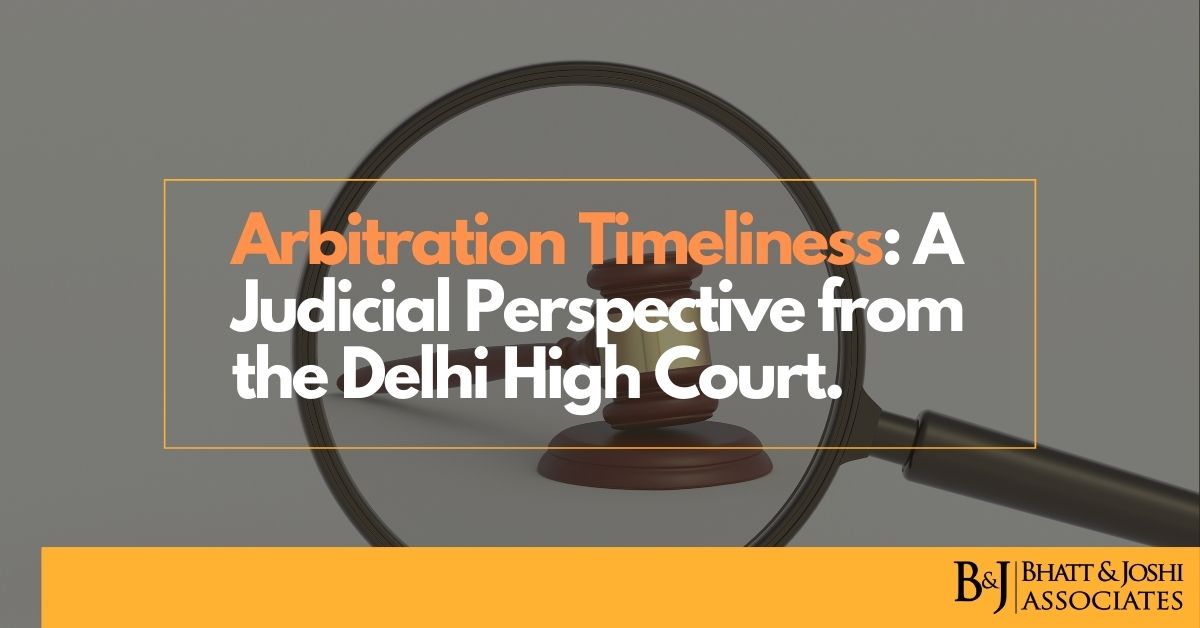Arbitration Timing Guidelines: Insights from Delhi High Court’s Interpretation of the Arbitration and Conciliation Act, 1996

In a detailed judgment, the Delhi High Court has elucidated on the precise timing required for invoking arbitration under the Arbitration Timing Guidelines set forth by the Arbitration and Conciliation Act, 1996. This case, involving Assam Petroleum Ltd. & Ors. vs. China Petroleum Technology Dev. Corp. & Ors., serves as a pivotal guide for legal practitioners and parties involved in arbitration agreements.
The Essence of the Case
At the heart of this legal discourse is the application of Section 8 of the Arbitration and Conciliation Act, 1996, which enables parties to move disputes from the courtroom to arbitration, provided an arbitration agreement exists.
Background and Dispute
The plaintiffs, a company specializing in petroleum and oil field operations, entered into a contract with the defendants, which led to disputes requiring judicial intervention. The defendants aimed to invoke the arbitration clause, seeking to redirect the dispute resolution mechanism as prescribed by the Act.
Legal Scrutiny: The Court’s Rationale on Arbitration Timing Guidelines
The Delhi High Court meticulously evaluated the application of Section 8, with a significant emphasis on the procedural timing for invoking arbitration.
“The primary issue before this Court for its consideration is: Whether the suit can be referred to arbitration under Section 8 of the Arbitration and Conciliation Act 1996.” (Para 15)
The Crucial Role of Arbitration Timing Guidelines: Background and Dispute
A core aspect of the court’s examination was the adherence to the statutory timing for filing an arbitration application.
“According to Section 8… the defendant No.1 has an option to take the objection to the filing of the suit in the first instance before it submits itself to the jurisdiction of the Court.” (Para 17)
Legal Terminologies Explained
– Arbitration Clause: A provision in a contract that mandates or allows the parties to resolve disputes through arbitration rather than litigation.
– Written Statement: A formal document filed by the defendant in court proceedings, detailing their defense against the plaintiff’s allegations.
– Jurisdiction: The authority granted to a legal body like a court to administer justice within a defined field of responsibility.
The Court’s Rationale and Judgment on Arbitration Timing Guidelines
The court highlighted the forfeiture of the right to arbitration due to the defendants’ engagement in litigation processes beyond the stipulated timeline for invoking arbitration.
“Consequently, if a party fails to pursue an application under Section 8(1) of the Act… the party would forfeit its right to apply under Section 8(1) of the A&C Act.” (Para 20)
Final Observations and Dismissal
Acknowledging the defendants’ submission to the court’s jurisdiction and the abandonment of their arbitration application, the court dismissed the plea for arbitration referral.
“Thus, he had submitted himself to the jurisdiction of this Court… The defendant cannot now put the clock back to the initial stage after sixteen years when much water has flowed under the bridge.” (Para 23)
Concluding Reflections: Adhering to Arbitration Timing Guideline
This judgment from the Delhi High Court accentuates the necessity of complying with procedural requirements for arbitration under the Arbitration and Conciliation Act, 1996. It serves as a critical reminder for parties to act diligently and within the prescribed timelines to maintain their arbitration rights, ensuring that the legal framework supports fair and efficient dispute resolution.









